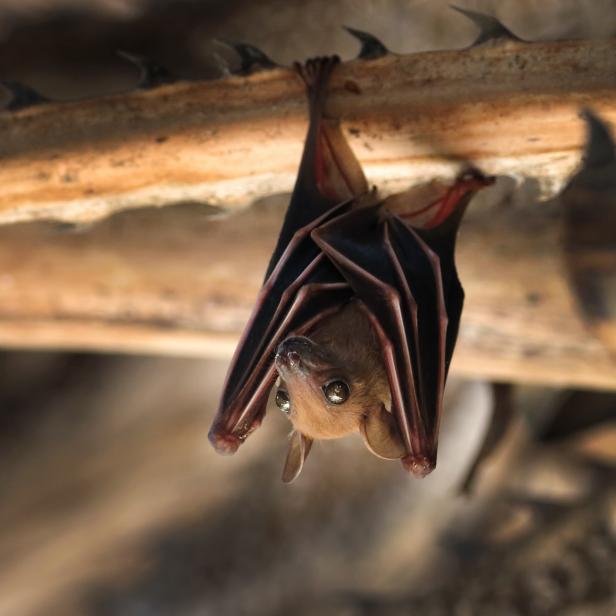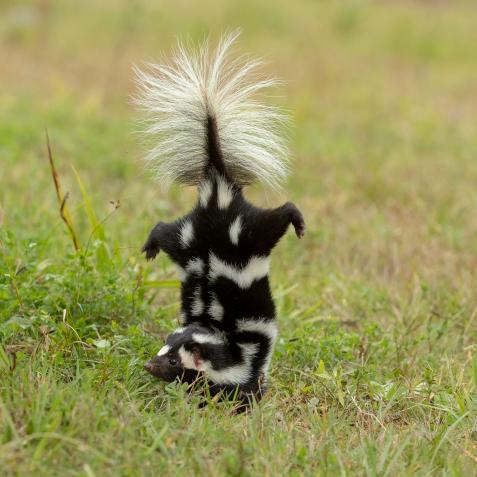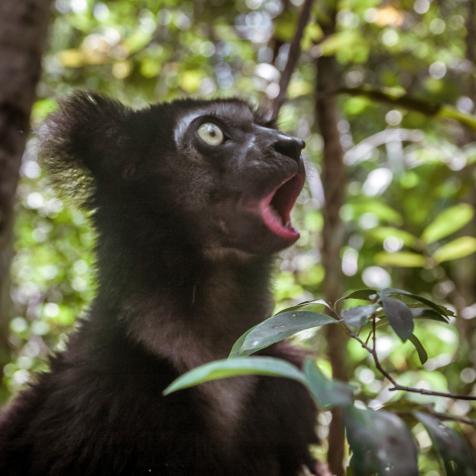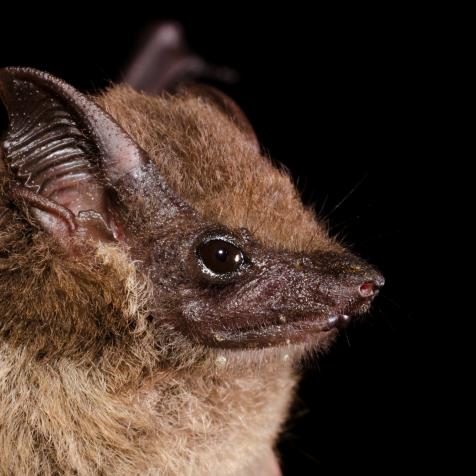
Getty Images/Rapeepong Puttakumwong
If A Bat Were To Bite You In Your Sleep, You'd Probably Never Know
Rabies is rare, but most cases are associated with bats.
In 2011, a 46-year-old woman in South Carolina went to the emergency room complaining of chills, shortness of breath, and a tingling sensation. Within 12 hours, she was on a ventilator, and in less than two weeks, she died. The family reported that she had encountered a bat a few months earlier, but had simply gotten rid of it by shaking it out of curtains through an open window. She didn't think she had even had direct contact with the bat, and definitely didn't have any signs of a bite. Medical experts sent her samples to a lab, and sure enough, they tested positive for rabies.
Rabies is rare—according to the CDC, only 19 U.S. cases were reported in humans from 1997 to 2006. But of those, 17 were associated with bats, and three of those people weren't even aware they had come into contact with a bat. That's most likely because bats have very small teeth and produce a bite that doesn't hurt the way a larger animal's would, so it's possible that they might not even wake their victim. They also hardly leave a mark, making it difficult to know you were ever bitten. That's the scariest part: when you know you've been bitten by a rabid animal, you can take precautionary measures by seeing a doctor and getting vaccinated. But if you don't know you were bitten and don't take precautions, the disease can progress until it's too late. That's why if you ever find a bat in your bedroom or near children or pets, you should take action: capture the bat if you can, get it tested, and seek medical advice. Learn more real-life horrors about bats and rabies in the videos below.
This article first appeared on Curiosity.com.









































































.jpg.rend.hgtvcom.476.476.suffix/1635892481978.jpeg)


